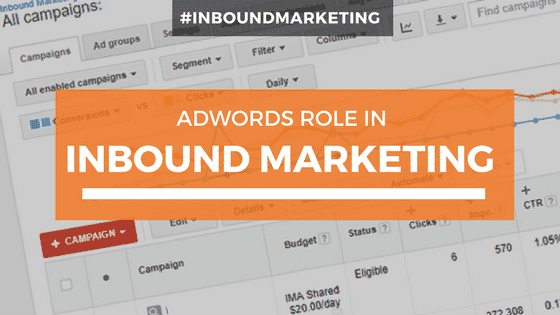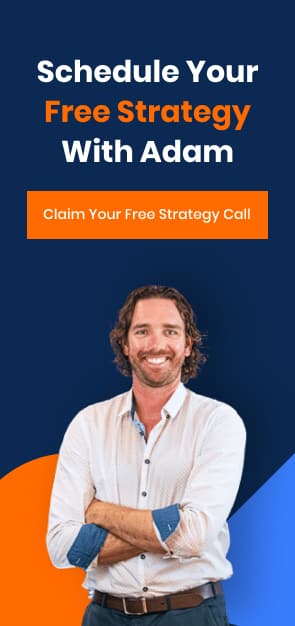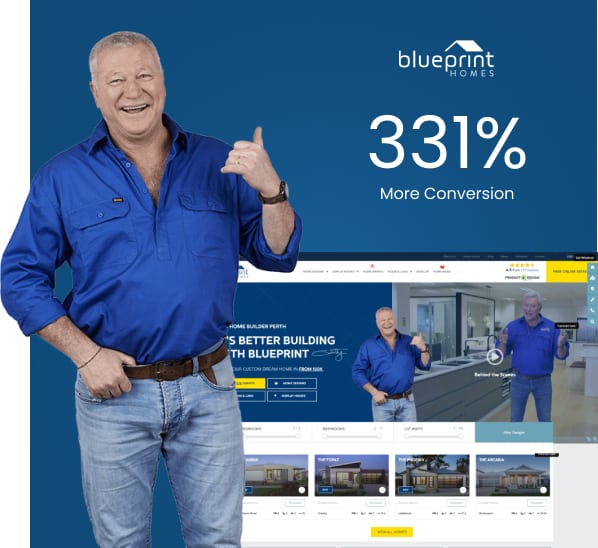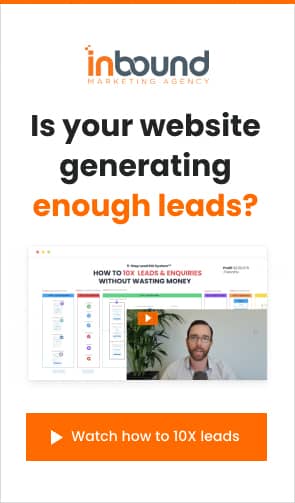There is debate over what part PPC has to play in an inbound marketing strategy. It tends to get mixed in with outbound marketing but PPC advertising, specifically AdWords, is not only an effective method of promoting your business but fits well into what inbound marketing should be.
Ads target leads at the right time and place, presenting answers and solutions to peoples’ questions and helping marketers move searchers further through the buyer’s journey.
What is AdWords?
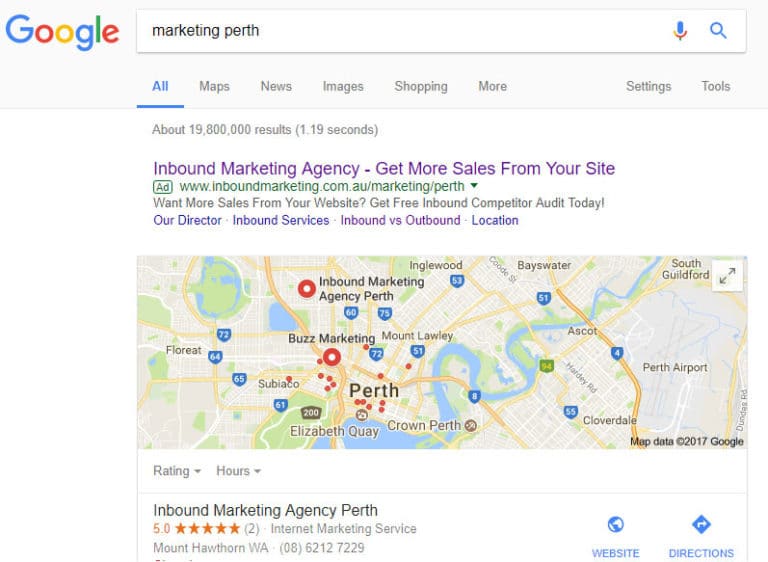
Google AdWords is a paid advertising platform where businesses can target specific keywords, locations and offers to compete for the space to display to searchers. When most people consider AdWords they think of paying for advertising and, in 2010, HubSpot declared PPC campaigns wasteful and unhelpful to the consumer in an over-saturated web.
Recently, however, HubSpot has changed their mind, agreeing that PPC campaigns can be an effective marketing channel as part of a complete marketing strategy. Search marketing is unique in that your customers start the conversation by searching for a topic.
AdWords gives marketers the chance to highlight their content to searchers looking for an answer, information, or solution, making it easier for customers to find their business.
The buyer’s journey
AdWords targets customers when they’re actively searching for something, increasing the likelihood that they’ll make a purchase decision. It is profoundly different from traditional advertising, where many people are targeted with ‘disruptive’ outbound marketing.
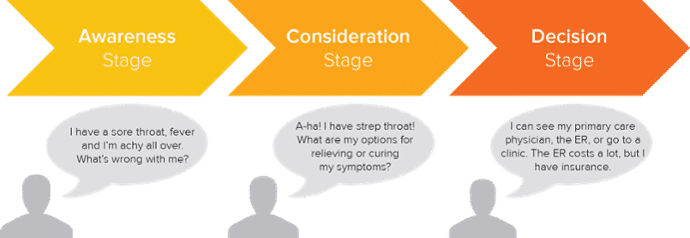
Source: Hubspot
The buyer’s journey is the cornerstone of inbound marketing, targeting prospects with content at different stages of the buyer’s journey: awareness, consideration, and decision. When people search online, they’re looking for an answer; inbound marketers can set up their ads to answer questions and target people that will find them relevant.
At the awareness stage, marketers can hit a large audience who have become aware of a problem or opportunity, using broader topical keywords to capture traffic.
At the consideration stage, we know that consumers tend to compare services and products as they are aware of a solution. Here marketers can use more targeted and service/product specific keywords to show their ads to more targeted traffic.
In the decision stage, PPC becomes highly competitive as searchers know exactly what they are looking for and advertisers compete to engage with and display their specific solution to those searching with ‘commercial intent’.
The ability to target specific keywords which reflect buyer intent can help move prospects down the funnel towards a purchase decision. Remarketing can also help drive those who have previously engaged with your business further through the buyer’s journey.
AdWords campaigns aren’t only dependent on keywords; they can also be used to target people based on geographic location, websites they visit, and the content they consume online.
AdWords Ads
Keeping your ads relevant and useful is helpful as it boosts your “quality score,” in turn lowering your bids for keywords. It also maintains the inbound marketing ethos:
- Show ads to people at the right time
- Answer searchers questions
- Move leads down the buyer’s journey
In some cases, AdWords can deliver a better user experience for the online searcher. If someone was in Perth looking for a “mechanic”, they are not going to want to ship their car to Melbourne to get their car fixed.
The garage in Melbourne can elect to show ads only people in Melbourne or within a certain distance from the shop. This creates a positive user experience for the searcher and saves the Melbourne mechanic on unnecessary clicks.
Content Amplification
Combined with your content efforts, AdWords is an important tactic to amplify your content, allowing you to dominate the search results and take traffic away from your competition.

Set up a system to understand the keywords and search queries that bring people to your site to be sure you’re advertising relevantly for what they’re looking for and how you can help.
Use this data to inspire and write compelling content around these topics on your website for search engine optimisation – once you show up in organic results you won’t have to pay for clicks.
The best results come from making full use of your AdWords findings to shape your inbound campaigns and efforts.
AdWords Results
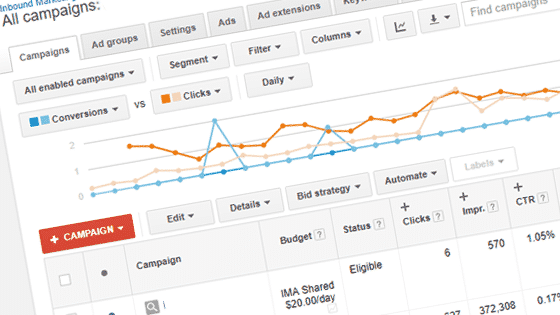
There are no fuzzy metrics or guesstimates – AdWords is results-based. You’ll see the relationship between how much you’re spending, how many leads you’re generating, and how many leads are converting into customers.
Focus your marketing efforts to decide how AdWords fits with the inbound marketing strategy best for you.
What’s Next?
The vast majority of businesses don’t have the in-house expertise or tools they need to be successful running an AdWords campaign.
Anyone can set up a Google AdWords campaign and there are lots of learning and training resources available for the do-it-yourself marketer, but if you want to have a successful AdWords campaign, it’s best to go with someone who’s got experience.
Inbound Marketing Agency specialises in both inbound marketing and PPC. Want some help creating your first AdWords campaign? Get in touch today!

